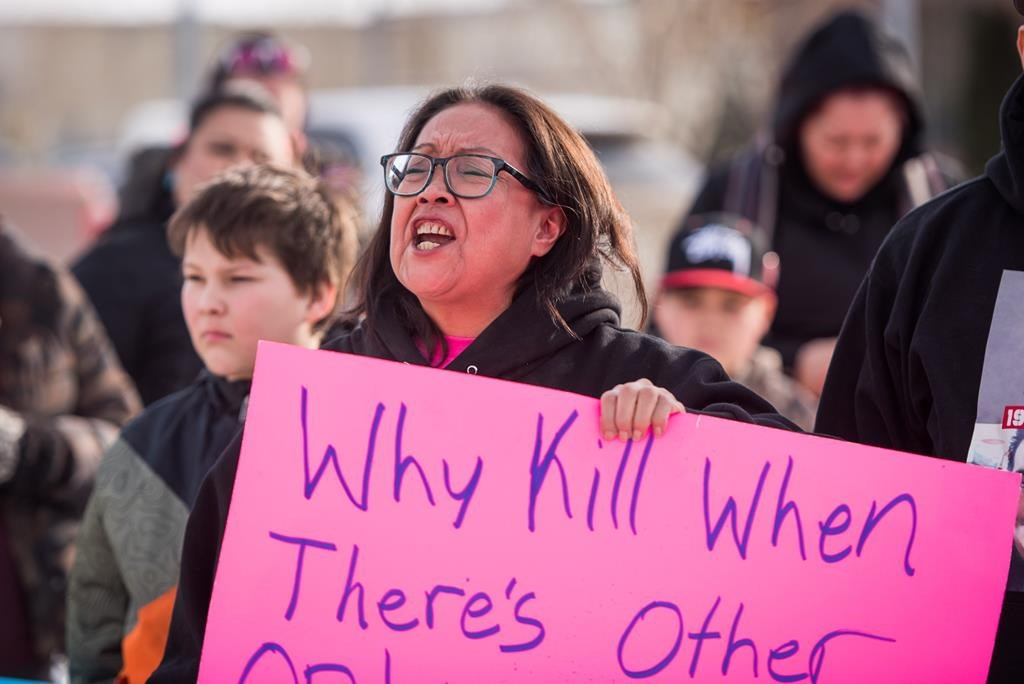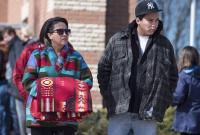Support strong Canadian climate journalism for 2025
The host of an Indigenous current affairs podcast says he believes the podcast's website was hacked and taken offline for several days, in the wake of a racially-tinged debate over a Saskatchewan murder trial.
Rick Harp, founder and president of INDIGENA Creative Group, said the Media Indigena website was knocked offline Sunday, the morning after the website posted a critique of the Gerald Stanley verdict.
Stanley, a white farmer, was found not guilty of second-degree murder in the 2016 shooting death of Red Pheasant First Nation resident Colten Boushie. The verdict has prompted protests across the country.
“I do believe my site has been hacked, and have received multiple confirmations of such,” said Harp in an emailed response to questions from National Observer. “But the motive and source is currently unknown, and I have been told they are basically unknowable.”
Harp said in the site’s eight years of online presence, he had yet to experience this issue, and “it does give one pause.”
Boushie, a 22-year-old, was shot in the back of the head as he was sitting in a vehicle, according to testimony heard in the trial. Red Pheasant First Nation Chief Clint Wuttunee, who noted that the jury that led to the not-guilty trial was all-white, called the verdict “absolutely perverse."
Prime Minister Justin Trudeau weighed in on the verdict, saying he was "not going to comment on the process that led to this point today, but I am going to say we have come to this point as a country far too many times." The opposition Conservatives accused him of "political interference."
Boushie's family went to Ottawa on Monday to meet with federal ministers. Jade Tootoosis, Boushie's cousin, told media "we have little to no faith in the justice system. We're here to talk about that."
Robert Jago points finger at 'racist hackers'
According to Harp, Media Indigena posted an article, later republished by National Observer, written by Montreal-based writer Robert Jago on Feb. 10 at 8:22 p.m. EST. The piece argues that the jurors in the trial “were raised to see [Indigenous peoples] as scary animals.”
“To find Gerald Stanley guilty, would be to find him responsible for his actions — actions which resulted in the death of Colten Boushie, an Indian. But we don’t do that in this country,’ wrote Jago. “White Canada is not responsible for what has happened to Indians.”
By Sunday morning, the website appeared to go offline. (The podcast itself is hosted on a different platform, said Harp, so it has not directly been affected.)
In a series of tweets posted Tuesday, three days after the outage, Jago pointed the finger at “racist hackers.”
“I wrote an article on crime against Native people...some people didn't like it for racial reasons...it was hacked and site it was featured on was destroyed,” he wrote. “Small Native site is...destroyed by racist hackers, for me, this would be a story, no?”
Jago couldn’t immediately be reached for additional comments before publication.
Harp said it was a “funny coincidence” that the site got hacked and taken down shortly after posting Jago’s piece. “Funny as in strange, of course,” he added.
“Although the timing is rather suspicious on its face, I cannot technically rule out that it's just a coincidence,” he said.
“Coincidence in the sense that, yes, it's been hacked, but, again, I cannot definitively say what the source or motive of the hack is here. Bots crawl the web constantly looking to make mischief and do not always discriminate.”
Media Indigena later tweeted on Feb. 13 that its site was back up.
Harp said the site had people working to resolve the issue "out of the goodness of their heart." He expected to incur costs to boost security in future, but wasn't immediately certain what those costs would be.
Editor's note: This article was updated at 12:15 p.m. on Wednesday to include new comments from Media Indigena that indicated they had partially restored access to their site.






Comments